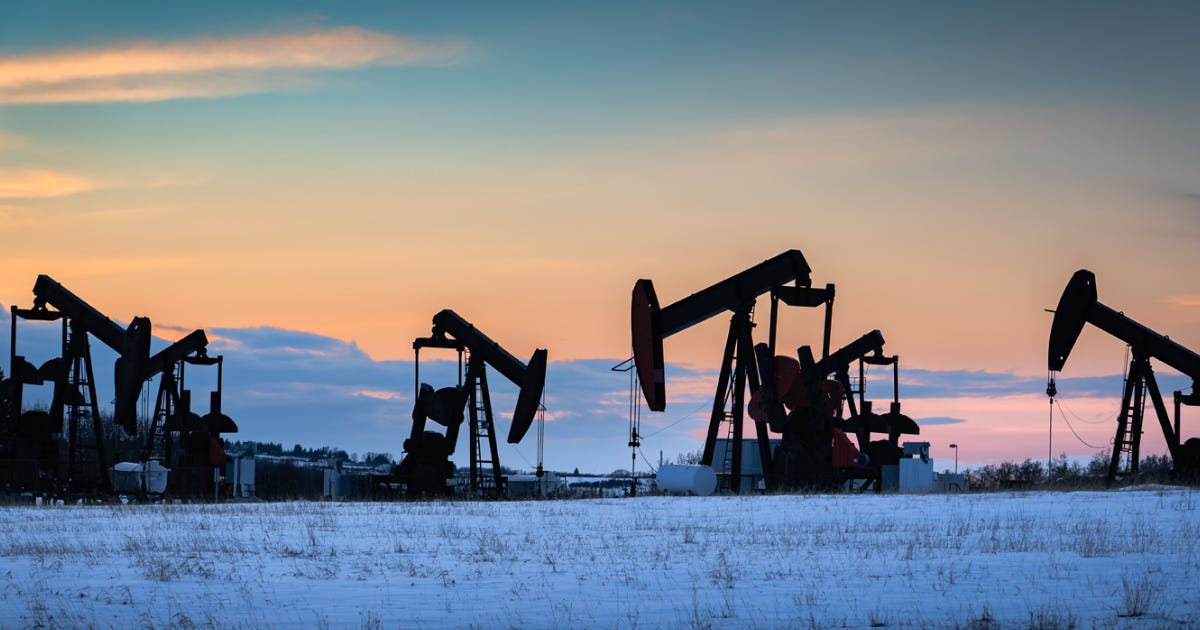Oil industry calls on Ottawa to seize opportunity presented by Asia
Alberta’s “heavy” oil is in high demand globally, compared to the “light” oil the United States exports, and industry leaders are calling on Ottawa to build pipelines.
Alberta’s “heavy” oil is in high demand globally, compared to the “light” oil the United States exports, and industry leaders are calling on Ottawa to build pipelines to seize the opportunity presented by the Asian market.
“The refining industry wants heavy oil. We are actually in a shortage of heavy oil globally right now, and you can see that in the prices,” senior vice-president of downstream research with Rystad Energy, Susan Bell, told Energy Now during an interview on Friday.
While Alberta’s crude oil producers have historically received a lower price than light oil producers than their U.S. counterparts in the Permian Basin, this was primarily due to the higher transportation costs to market.
S&P Global documented the reason for differing prices in a 2020 report, which found that “delays in the expansion of pipeline export capacity have contributed to wider differentials and lower prices in western Canada than otherwise would have been expected.”
The price “differential” between Western Canadian Select (WCS) and West Texas Intermediate (WTI) reached nearly USD $50 per barrel in 2018 as a result of pipeline bottlenecks, which forced Alberta to scale back production.
However, that differential narrowed to as little as USD $10 per barrel this year, averaging around USD $12, according to GLJ Petroleum Consultants.
“The differential between WCS and WTI is the narrowest I’ve seen in three decades working in the industry,” noted Bell.
The change in price can largely be credited to the Trans Mountain expansion last year, which nearly tripled the pipeline’s capacity.
Its expansion also comes as a burgeoning new market for Canadian oil is opening up in the Asian market.
It has also helped to alleviate reliance on less reliable markets such as Mexico and Venezuela.
Chief analyst for Canadian oil markets at S&P Global Kevin Birn said that the growth in demand for Alberta’s heavy oil in tandem with interest in other sources declining has “contributed to a tighter market for heavy oil and narrower spreads.”
According to the Canada Energy Regulator, Canadian oil exports outside of the U.S. reached a record 525,000 barrels per day in July.
China has been the largest buyer, followed by Japan, Brunei and Singapore.
“What we are seeing now is a lot of refineries in the Asian market have been exposed long enough to WCS and now are comfortable with taking on regular shipments,” said Bell.
However, Canada still faces major impediments when building new pipelines to meet the demand, the bulk of which are political.
“There is absolutely a business case for a second pipeline to tidewater,” Bell continued. “The challenge is other hurdles limiting the growth in the industry, including legislation such as the tanker ban or the oil and gas emissions cap.”
Birn arrived at a similar conclusion, noting that the country’s energy sector is currently at a crossroads.
“Canada needs to ask itself whether to continue to expand pipeline capacity south to the United States or to access global markets itself, which would bring more competition for its products,” he said.





The Elbows Up Regime will take the easy way out and avoid any decision making to push a pipeline thru BC. " consensus " you know.
The Keystone XL is basically ready to go within Alberta's border. If it fails, it'll be Trumps fault.
Here's some history on our Mr Net Zero when he was the UN Special Envoy for Climate Action and Finance.
https://www.un.org/en/climatechange/mark-carney-investing-net-zero-climate-solutions-creates-value-and-rewards
Wake up carney!